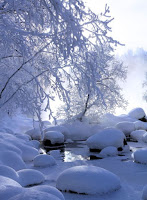The colder temperatures can also lead to flares of muscular-skeletal or respiratory conditions so extra precautions and monitoring by a medical professional may be warranted.
Here are some recommendations from Five Star Senior Living to help protect seniors during the cold weather months.
- Due to decreased exposure to sunlight Vitamin D deficiencies are more common in the winter months. As Vitamin D is an important protector of the heart, discuss with your primary care physician if there is a need for Vitamin D supplementation.
- Despite the news that the flu vaccine this year is not as effective as hoped, because of the increased health risk associated with the flu for older adults, vaccination is still highly encouraged. Be sure to practice good hand washing techniques and whipping surfaces down frequently. Try to keep hands away from your face and keep sick household members as isolated as possible.
- Many seniors live alone and during the winter months they are subject to spending too much time without social interactions. To help curb feelings of loneliness, use video chat services to connect with others face-to-face.
- Snow and ice present an increase risk for slip and fall injuries. Enlist the service of an individual or company to keep sidewalks and walkways clear. If finances are an issue, check with your local agency on aging to see what services are available for senior adults.
- Have the proper gear to get through the colder months. This includes winter boots and non-skid sole shoes. For those who use a cane or other similar assistive device, get an ice grip for the tip. Anytime you venture out be sure to have on a hat, gloves/mittens, dress in layers and wear loose fitting clothes made of natural fabrics. Check out FEMAs guide to help keep winter safe "Winter Storms & Extreme Cold".
- Keep pantries well-stocked and when possible have an emergency medication supply on hand.
- When possible have a designated person who can check in on you on a regular basis. If there is use of medical equipment in the home that requires power...register for priority status and have your local utilities numbers on hand in the event of loss of power.

